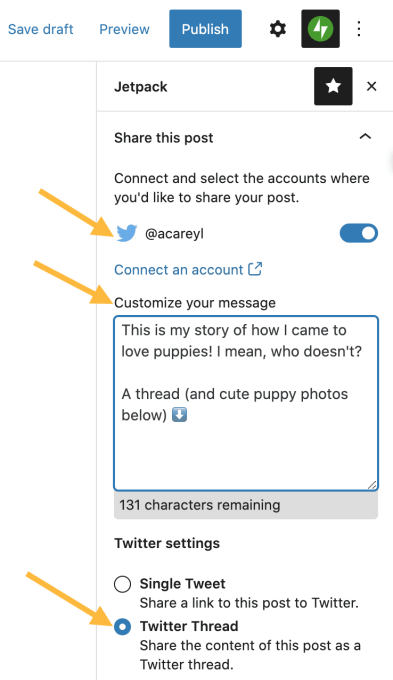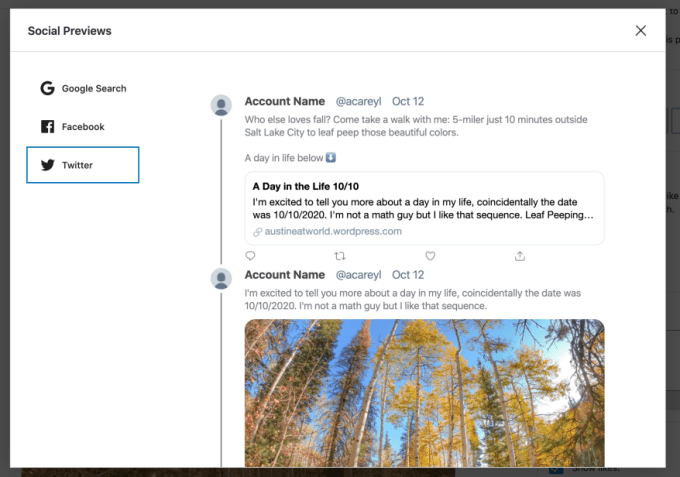NEWS
WordPress can now turn blog posts into tweetstorms automatically

Earlier this year, WordPress.com introduced an easier way to post your Twitter threads, also known as tweetstorms, to your blog with the introduction of the “unroll” option for Twitter embeds. Today, the company is addressing the flip side of tweetstorm publication — it’s making it possible to turn your existing WordPress blog post into a tweetstorm with just a couple of clicks.
The new feature will allow you to tweet out every word of your post, as well as the accompanying images and videos, the company says. These will be automatically inserted into the thread where they belong alongside your text.
To use the tweetstorm feature, a WordPress user will first click on the Jetpack icon on the top right of the page, then connect their Twitter account to their WordPress site, if that hadn’t been done already.

Image Credits: WordPress.com
The option also supports multiple Twitter accounts, if you want to post your tweetstorms in several places.
Once Twitter is connected, you’ll select the account or accounts where you want to tweet, then choose the newly added option to share the post as a Twitter thread instead of a single post with a link.

Image Credits: WordPress.com
In the box provided, you’ll write an introductory message for your tweetstorm, so Twitter users will know what your Twitter thread will be discussing.
When you then click on the “publish” button, the blog post will be shared as a tweetstorm automatically.

Image Credits: WordPress.com
The feature was also designed with a few thoughtful touches to make the tweetstorm feel more natural, as if it had been written directly on Twitter.
For starters, WordPress says it will pay attention to the blog post’s formatting in order to determine where to separate the tweets. Instead of packing the first tweet with as many words as possible, it places the break at the end of the first sentence, for example. When a paragraph is too long for a single tweet, it’s automatically split out into as many tweets as needed, instead of being cut off. A list block, meanwhile, will be formatted as a list on Twitter.
To help writers craft a blog post that will work as a tweetstorm, you can choose to view where the tweets will be split in the social preview feature. This allows WordPress users to better shape the post to fit Twitter’s character limit as they write.

Image Credits: WordPress.com
At the end of the published tweetstorm, Twitter followers will be able to click a link to read the post on the WordPress site.
This addresses a common complaint with Twitter threads. While it’s useful to have longer thoughts posted to social media for attention, reading through paragraphs of content directly on Twitter can be difficult. But as tweetstroms grew in popularity, tools to solve this problem emerged. The most popular is a Twitter bot called @ThreadReaderApp, which lets users read a thread in a long-form format by mentioning the account by name within the thread along with the keyword “unroll.”
With the launch of the new WordPress feature, however, Twitter users won’t have to turn to third-party utilities — they can just click through on the link provided to read the content as a blog post. This, in turn, could help turn Twitter followers into blog subscribers, allowing the WordPress writer to increase their overall reach.
WordPress’ plans to introduce the tweetstorm feature had been announced last month as coming in the Jetpack 9.0 release, arriving in early October.
The feature is now publicly available, the company says.
TechCrunch


















